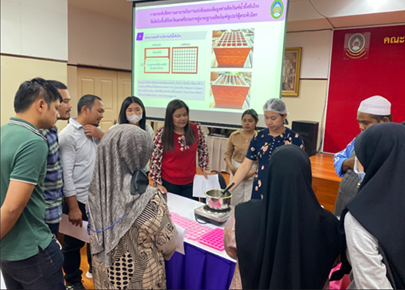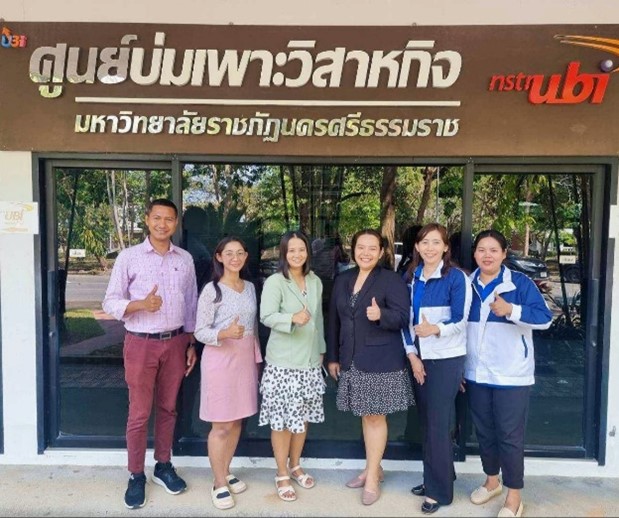Measure the amount of food waste generated from food served within the university.
As a key component of its Green University Policy, Nakhon Si Thammarat Rajabhat University (NSTRU) places a high priority on sustainable waste management. To meet its Zero Waste Campus goal, the institution has set up a thorough waste management strategy, set aside a certain amount of money, and encouraged shared accountability among all departments. Through a waste management scheme that emphasizes waste material separation, recycling, and reuse, the institution hopes to encourage everyday waste sorting and responsible consumption. Separated recyclables are sold to authorized recycling businesses. Over 78% of the organic waste on campus—mostly leaves and twigs—is broken down, composted, and used again as fertilizer for campus landscaping and trees.
To further reduce landfill waste and improve community cooperation, over 22% of the food waste produced by campus food vendors and canteens is given to nearby villagers for use as animal feed. According to trash disposal procedures and municipal environmental requirements, the residual garbage is gathered and handled. Prior to disposal, the institution measured and documented the quantity of garbage in a methodical manner during the 2024 academic year. Food waste accounted for 93 tons of the approximately 425 tons of garbage produced annually. With 9,287 people enrolled at the institution (containing 8,526 students and 761 employees, including 374 academic and 387 support workers), the average annual amount of food waste produced per person was 10.04 kilos, or 0.01 tons.







